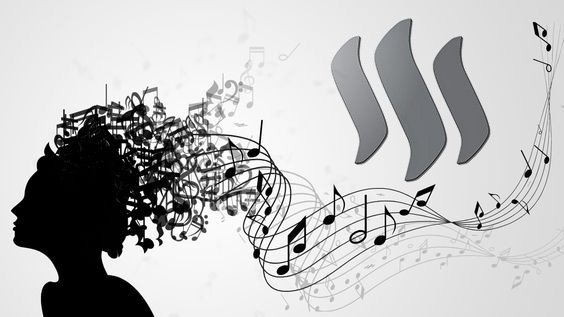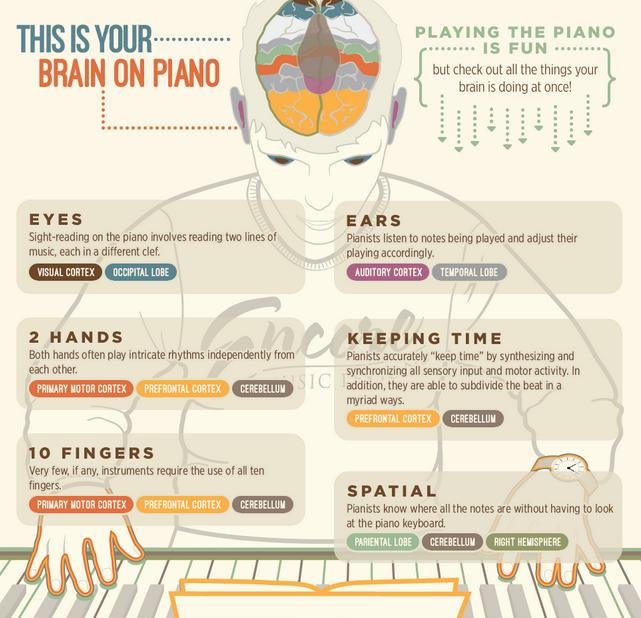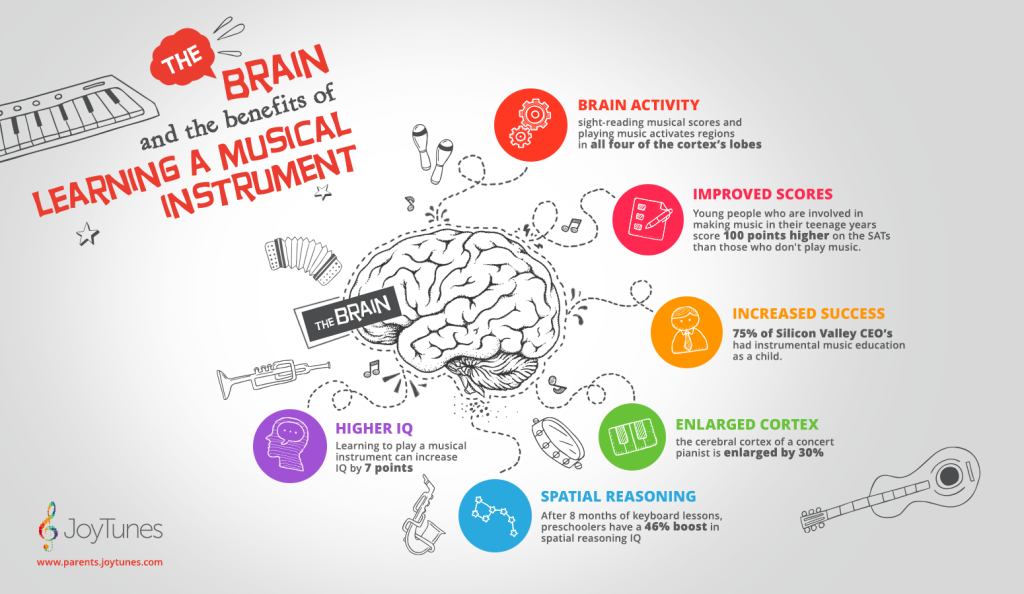
Music is amazing - it can change our mood, release stress, and is a universal language all around the world.
But it's beneficial to our brain too - Let's take a look at all the effects that take place when we play a musical instrument!
Researchers have observed brain activity during the execution of a musical instrument - and found out that our brains are active in many different areas when we play a musical instrument.
The visual, auditory and motor cortices of our brain are all being stimulated at once.
If these skills are trained over a long period of time, we can even apply these skills to other activities or areas of life as well.

One of the most important skills that are required to play an instrument are the motor skills. And these are actually being controlled in both hemispheres of the brain.
While the left side of our brain is executing the linguistic and mathematical precision, the right side of our brain takes care of the creative process.
So as you can see, almost all different areas of our brain are being used simultaneously, resulting in an increased activity and volume of the corpus callosum, which is the part of the brain that builds a bridge between the different sides of our brain.
This makes the transfer of information between the two hemispheres much faster.

Only 20 minutes of piano training have already shown significant new connections in kid's auditory and visual cortices - and when they pursue the activity for a few weeks, the motor skills add up to that.
Even when a child has only played an instrument for a few years, it can have impacts on its whole adult life.
Scientists suggest that this increases Musicians' problem solving skills, in academic and social situations.
Musicians also often show an increased level of executive function (interconnected tasks that include planning, prioritizing and strategizing) because they have to understand and reflect the emotional message of the music as well as execute the task on a physical level.
This process requires an analysis of cognitive and emotional aspects at the same time.

A recent study researched the effect of musical training:
45 test subjects were divided into three groups.
The first group had never played any instrument, the second group had played an instrument for 1-5 years, and the second group for 6-11 years.
Then, the scientists played several different noises and recorded the subject's brain activity.
The results showed that the subjects that had musical education were much better at processing the sounds than the others - and this was even true for the group of people that had only played an instrument for 1-5 years.
It was easier for them to distinguish background noise from relevant sounds - and this can also be applied to speech, not only music.

What happens when a child learns to play a musical instrument?
- Improved Neuroplasticity: like I already explained above, playing an instrument is a very complex task that stimulates both hemispheres of the brain, ultimately improving the kid's neuroplasticity and overall intelligence.
- Motivation: Kids that play musical instruments often achieve better grades in school - although they have less time to study. That's because learning an instrument improves the motivation and the will to learn!
- Motor skills: learning an instrument is the perfect challenge for children's hands to master their motor skills.
- Concentration and memory: When playing an instrument, you have to be focused, otherwise you wouldn't be able to execute all those different tasks at once - and often, you have to memorize certain parts of the music as well.
- Joy: Of course, music is FUN! Playing an instrument doesn't only release stress and anxiety, but it also improves overall mood and well-being.
- Instagram -

© Sirwinchester
